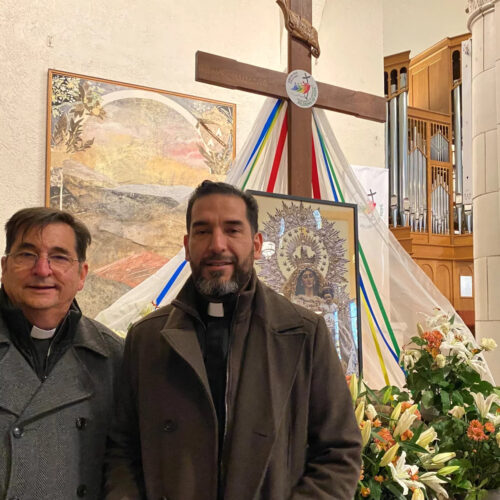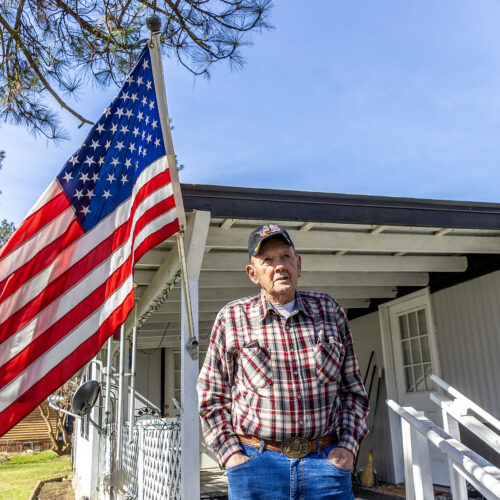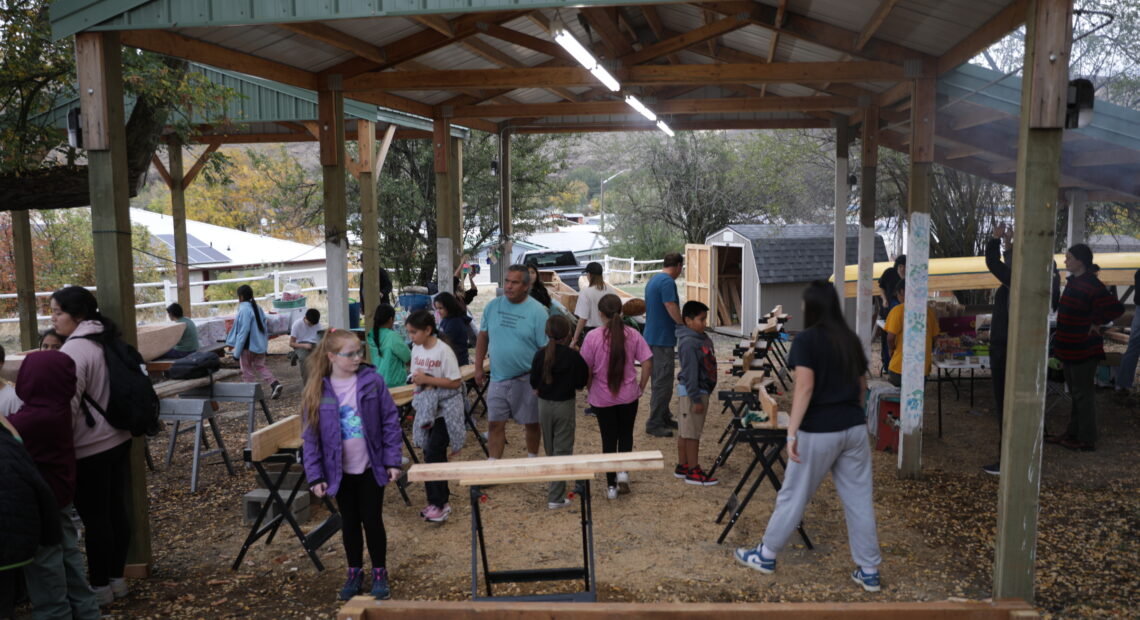
A Nez Perce nonprofit teaches kids cultural traditions
watch
Listen
Read
On a chilly fall afternoon, volunteers from Nimiipuu Protecting the Environment — a nonprofit based in Lapwai, Idaho — were preparing for the arrival of a large group of fourth and fifth graders. They were there to carve canoe paddles.
Rease Maconnell, a 13-year-old volunteer, was on-site setting up the paddles.
Maconnell has been volunteering for about three years. She said it’s enjoyable because she gets to teach younger kids about paddle carving.
And, Maconnell added:
” … It gives me something to do to get away from, like, my house and annoying siblings,” she said.
There were also some more experienced volunteers, including Dave Paul, a professor at the University of Idaho.
He’s a paddle carver, teacher and dugout canoe builder. Paul has been teaching these skills for nearly a decade, and said it’s about more than just woodworking.
“It’s a way of artistic expression, for a lot of the kids. It’s a thing, a tool, that they will actually use, hopefully. And the kids just love it,” he said.
Paul walked down a hill to a shed full of wood and partially carved paddles, and explained the design process.
“This is where they start with a flat board. So the kids draw whatever design they want on the board, and then we go over it. And what you do is you take a saw, and you make cuts … and then you take a mallet and chisel and pop the wood out, until you kind of formed the shape of it. It takes them a few weeks to do that,” he said.
Paul said the paddle designs come from a sheet with various patterns for the kids to pick from.
“Of course, they don’t always turn out the way they started, but that’s part of the process, I guess,” he said.
Some of the younger volunteers were also working on sanding what’s called a dugout canoe, which is made by carving out a tree trunk.
This particular dugout canoe was small — Paul said it would hold about one adult and one kid. In his own words — he called it a “chipmunk canoe.”
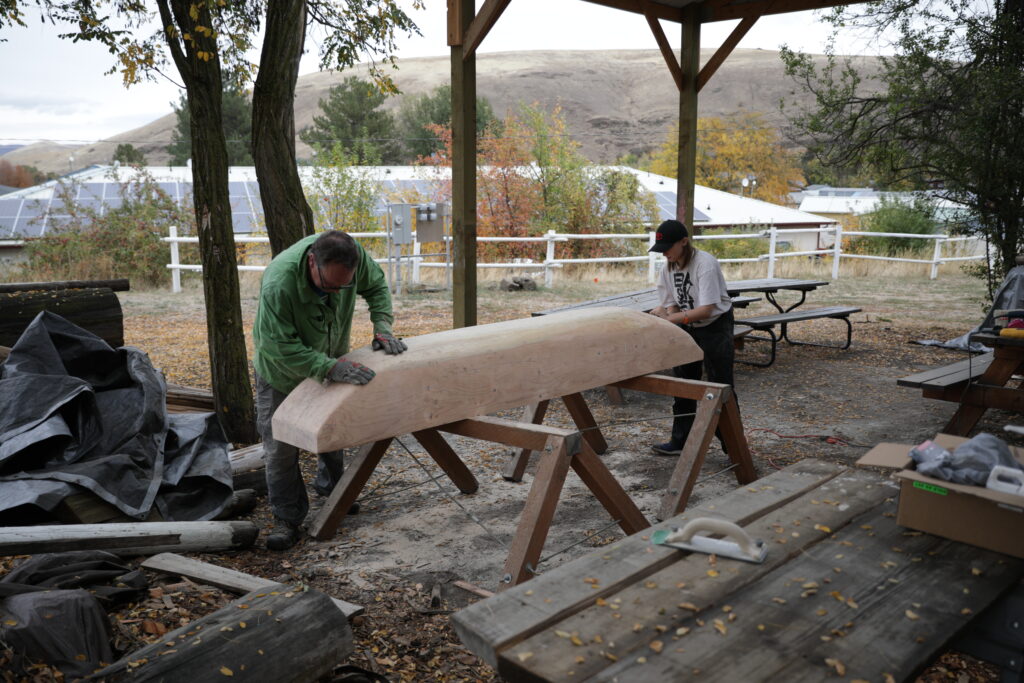
Dave Paul, left, and Rease Maconnell, right, sand a small dugout canoe. (Credit: Malachi Trimble / NWPB)
Julian Matthews is the coordinator for Nimiipuu Protecting the Environment. He added that volunteers help students learn about the Nez Perce Tribe.
“‘Cause this is essentially, like, we brought back this traditional dugout canoe carving and paddle carving. That’s what’s gone from our tribes, so that’s what we’re, just working on that,” Matthews said.
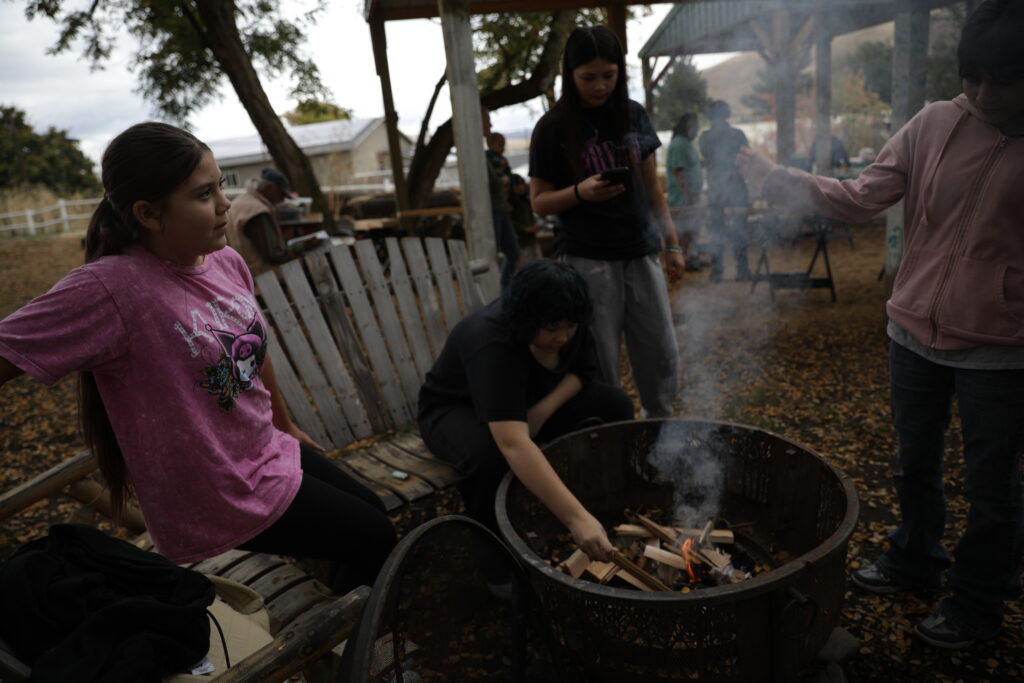
Kids warm up by the fire during the paddle carving event. (Credit: Malachi Trimble / NWPB)
Shanny Spang Gion was volunteering with her daughter. She said volunteering at these events is important for reclaiming and restoring relationships to land and water.
“To have that kind of knowledge practiced when you’re young, those are things you remember,” she said.
Hudson Speas, 10, was working on carving his paddle. He said that chiseling has been the most interesting aspect.
“It’s cool how it breaks all the wood off,” Speas said. “… I like it how it just goes all up in the air, it goes pretty high sometimes if you hit it just right.”
This story is part of a continuing series highlighting nonprofits in the Northwest.





